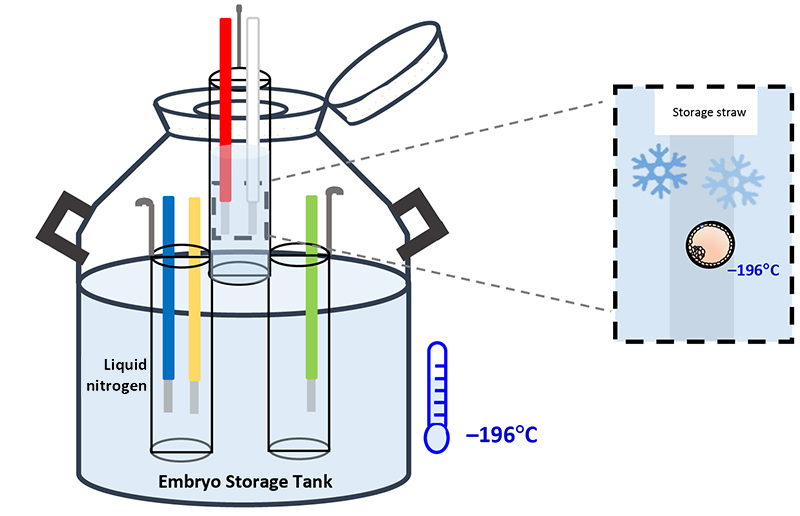Embryo Freezing
Why are embryos frozen?
During an IVF treatment cycles, embryos may be frozen in the following circumstances:
-
Embryos are normally returned to the woman’s womb a few days after the egg collection in the same cycle. Any remaining good quality embryos are frozen for use in the future, in case treatment does not work or to try for a sibling.
-
The doctor may advise the woman to freeze all embryos for transfer in another cycle if she has the following condition(s):
-
If the woman is responding excessively to the stimulation drugs and she has produced too many eggs, she will be at risk of developing ovarian hyperstimulation syndrome (OHSS). If she has embryos transferred in the same cycle and conceives immediately, the chance of her having severe OHSS will be higher and the symptoms will last longer. By having all her embryos frozen, any OHSS symptoms will disappear quickly, thus effectively preventing her from having a severe form of OHSS.
-
The woman’s hormonal response to stimulation drugs is affecting the lining of the womb, making it less receptive to embryos.
-
The woman may have other medical condition that requires treatment before transferring the embryos back to the womb.
-
How are embryos frozen?
In HKARC, the embryos are put in embryo containers called storage straws and then frozen by vitrification (rapid freezing). The straws containing the embryos are eventually stored in liquid nitrogen tanks. The vitrification method has a higher embryo survival rate on thawing as compared to the old-fashioned slow freezing method, and has therefore become the preferred method of freezing embryos nowadays.

 scroll right to see more
scroll right to see more
What happens when a couple wants to use their embryos?
When the couple is ready to use their embryos, the embryos are thawed and transferred back to the woman’s womb. This is called Frozen-thawed Embryo Transfer (FET).
How long can the embryo be stored for?
Embryos can be stored for up to a maximum of 10 years. Patients in certain circumstances, such as cancer patients, can store their embryos for up to 10 years or when they are 55 years old, whichever is later.

 scroll right to see more
scroll right to see more